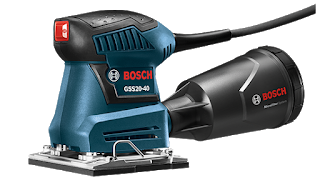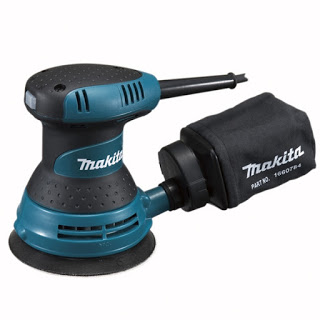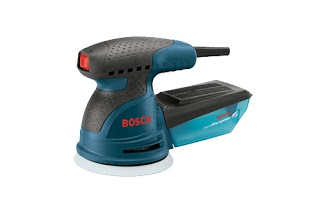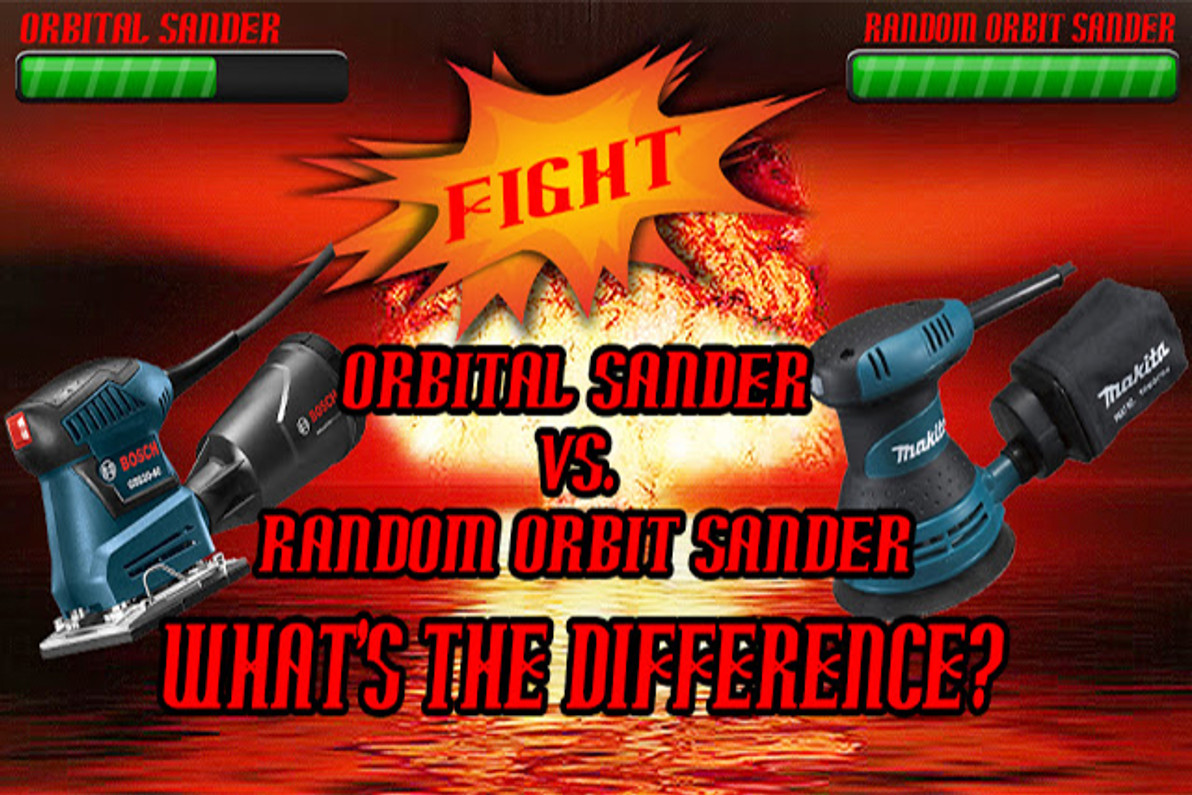Orbital Sander vs. Random Orbit Sander: What's the difference?
A question we received from our last post (click here) was "what is the difference between an Orbital Sander and a Random Orbit Sander?" While they both sound very similar by name, they are very different.
Orbital Sander
This sander is also known as the finishing sander. It uses a fraction (¼,⅓, or ½) of a 9" x 11" sheet of regular sandpaper that is held by clamps. It's sanding area is shaped like a square which makes it perfect for getting into corners and against straight edges.

They are not to be used on very rough surfaces because they aren't very
aggressive, so the sandpaper might tear. Orbital sanders are easy to
control and it's difficult to damage a surface using it, this is because
'over-sanding' with it is nearly impossible, unless you hold it in one
place and intentionally try to. This sander is great for in-between
coats of paint or finishing wood. One common complaint about using an
orbital sander is the sanding marks that it leaves behind, this is
because the sander rotates in tiny circles at a high speed and can cause
swirly lines on the surface. It's best used with an extremely high grit
sandpaper to create the smoothest and softest finish.
The orbital sander is usually cheaper than the random orbit sander at about $40 - $100.
Random Orbit Sander
Now, on to the random orbit sander. This sander uses two types of discs:
the hook and loop disc or pressure sensitive adhesive (PSA) disc. These
discs are much easier to install than sandpaper as used by the orbital
disc, they are also longer lasting. The random orbit sander is shaped in
a circle, so it unfortunately does not fit in corners. This
disadvantage is made up for by it's ability to sand down a lot more
material than the orbital sander. That's right, this sander can be used
on a rough surface and still do a great job. It's actually a prep sander
(that can also be used for finishing with less pressure and finer grit
discs), so it's ideal for taking off layers of rough material.

The random orbit sander vibrates less and has great dust collection, making it easier on the person using it.
It does not leave sanding marks on the wood because of it's random,
multi-directional sanding pattern. The discs moves by spinning and also
oscillating at the same time in unique directions.

The random orbital sander is more expensive at about $60 - $300+.
Thank you for stopping by the Edmonton Fasteners blog! We will have our
next article up a week from now. Please check out our power tool sale,
it is going on for four more days! If you have any questions regarding
power tools, feel free to email us at sales@edmfast.com or give us a
call! Our experts will gladly assist you. Have a great day!
Recent Posts
-
Bissett is Universally Compatible, See Why and How
With Bissett's over 600 fasteners, you're bound to find the perfect fastener for your tool. You …2021 Mar 16th -
How To Choose Safety Gloves
We love healthy hands at Edmonton Fasteners. We’re not a skincare shop (clearly) but we d …2021 Mar 8th -
Three Easy Home Fixes with Gorilla Glue
Gorilla Glue is a household name because of one reason: it works. We carry Gorilla Glue at Edmo …2021 Feb 2nd





